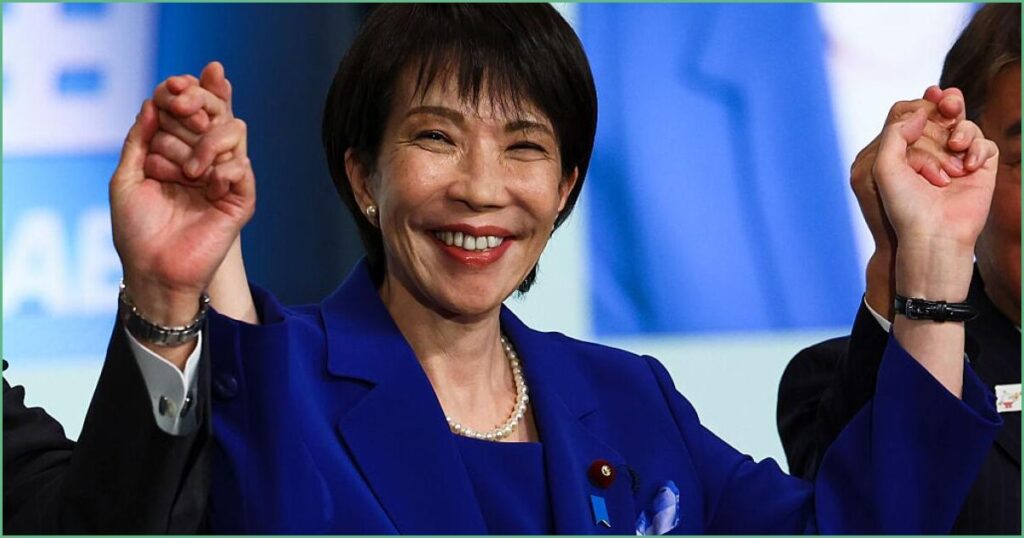Japan’s ruling party elects Sanae Takaichi leader who is set to become first female prime minister
Sanae Takaichi has been chosen as leader of Japan’s dominant Liberal Democratic Party, a win that all but guarantees she will become the nation’s first woman prime minister. The contest followed Prime Minister Fumio Kishida’s resignation and concluded with party insiders and rank-and-file members lining up behind a conservative, experienced hand. The result marks a clear shift toward a more assertive, security-focused agenda.
Takaichi is a veteran lawmaker in her early sixties who served as internal affairs minister and has long been associated with the reform-minded faction that supported former prime minister Shinzo Abe. Her platform emphasized stronger defense, a revitalized economy, and a recommitment to the U.S.-Japan alliance. Those themes resonated with party voters who worry about regional threats and want steady leadership.
By winning the leadership, she steps into a role chosen effectively by the lower house majority the LDP controls, meaning a quick confirmation as prime minister is now likely. That parliamentary reality shortens the transition window and raises expectations for immediate policy moves. Observers in Tokyo and Washington will be watching for who she appoints to key cabinet posts.
What she’s promising and what it means
In her acceptance remarks she pledged to strengthen Japan’s economy, bolster national defense, and deepen the alliance with the United States in the face of rising security challenges in the region. She also vowed to promote innovation and offer more support to families juggling work and rising living costs. Those goals are familiar to conservatives who favor market-friendly reforms plus firm deterrence against threats from authoritarian neighbors.
Economically, Takaichi speaks the language of productivity and private-sector empowerment rather than heavy-handed state intervention. She wants to encourage new industries, back technological advances, and ease burdens that hold small businesses down. For voters worried about stagnant wages and an aging population, her pitch is to unleash growth and make family life less expensive.
On defense, Takaichi’s alignment with Abe-era policies signals a willingness to beef up capabilities and increase Japan’s strategic footprint. That could mean more defense spending, closer joint planning with U.S. forces, and faster procurement of critical systems. From a Republican viewpoint, that emphasis on deterrence and allied coordination is smart and necessary in a dangerous neighborhood.
Her commitment to the U.S. alliance reassures partners who value predictability and shared objectives in Asia. Takaichi has said she will keep working alongside American counterparts to deter aggression and keep trade routes open. For conservatives who prioritize strong alliances, this continuity is a win and a stabilizer for regional markets and security planning.
Domestically, she faces entrenched bureaucratic interests and a public that is skeptical after years of modest growth and headline-grabbing scandals. Cutting through that inertia will require political capital and ruthless prioritization, skills she will need to demonstrate fast. If she moves decisively, she can set a new tone for governance focused on results.
Her association with Abe’s policy circle is both an asset and a potential complication. It gives her credibility on defense and national pride, but it also links her to controversies others may exploit. Managing that legacy will test her political skill as she tries to unite fractured factions within the party and appeal to voters beyond the base.
Japan’s demographic clock is ticking and economic headwinds are real, so the honeymoon will be short if results do not arrive. Households expect relief on living costs, and businesses expect clearer signals on regulation and taxes. The balance she strikes between fiscal discipline and targeted relief will determine whether she wins broad public support.
There is also the question of messaging: can a conservative woman marshal issues that matter to families without being boxed into old stereotypes? Takaichi’s ability to present a modern conservatism that prioritizes family, security, and opportunity will shape how her tenure is remembered. That narrative matters to voters who want practical solutions, not ideology for its own sake.
Internationally, capitals from Washington to Seoul will test how fast she moves and how resolute she is on alliance commitments and regional stability. Any sign of wavering on shared defense plans or economic openness would draw immediate scrutiny. For those who favor a robust U.S.-Japan partnership, quick clarity will be welcome.
Her path forward will include choosing ministers who can deliver on defense modernization, economic reform, and family policy without alienating key allies in the party. That team-building will be watched closely by investors and diplomats alike. Strong appointments would underscore continuity with a firm, pragmatic approach to governance.
Takaichi’s rise is historic on the gender front, and conservatives should note that leadership can come in many forms while still holding to core principles like fiscal responsibility and national security. Her victory proves that conservative ideas can find broad appeal even as society changes. Now the test is converting electoral momentum into measurable improvement in people’s lives.
Expect a swift confirmation in the Diet and an early flurry of policy signals intended to calm markets and reassure allies. The coming weeks will reveal whether her promises are more than words and whether she can navigate Japan’s complex political machinery. For Republicans watching abroad, her tilt toward stronger defense and a tighter alliance with the United States is the most welcome news of all.
